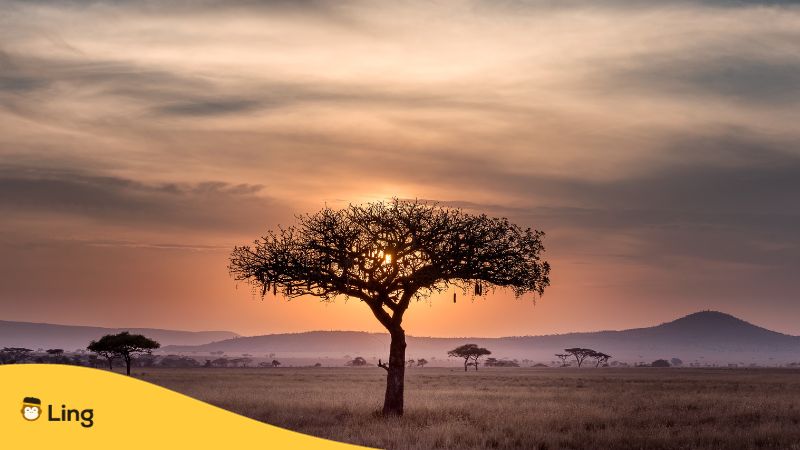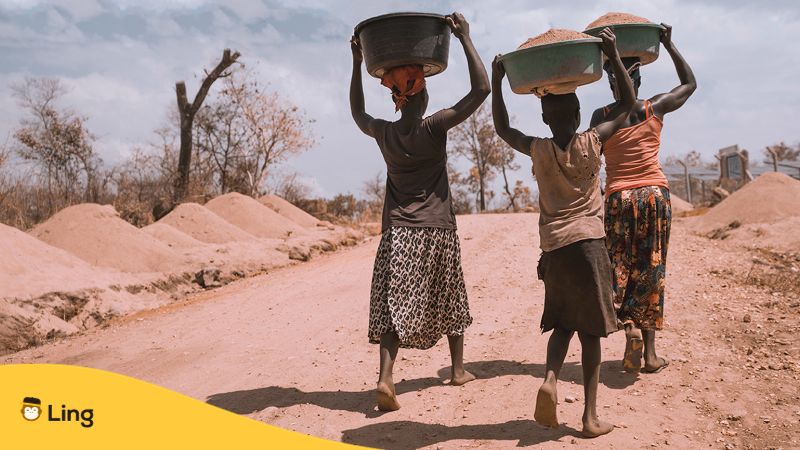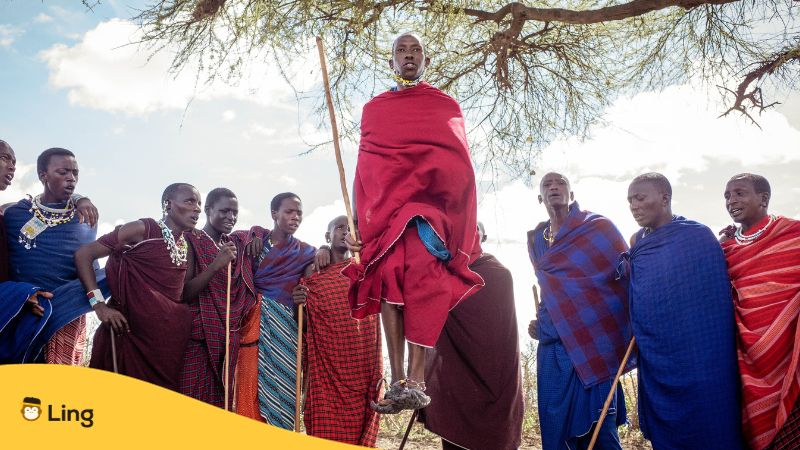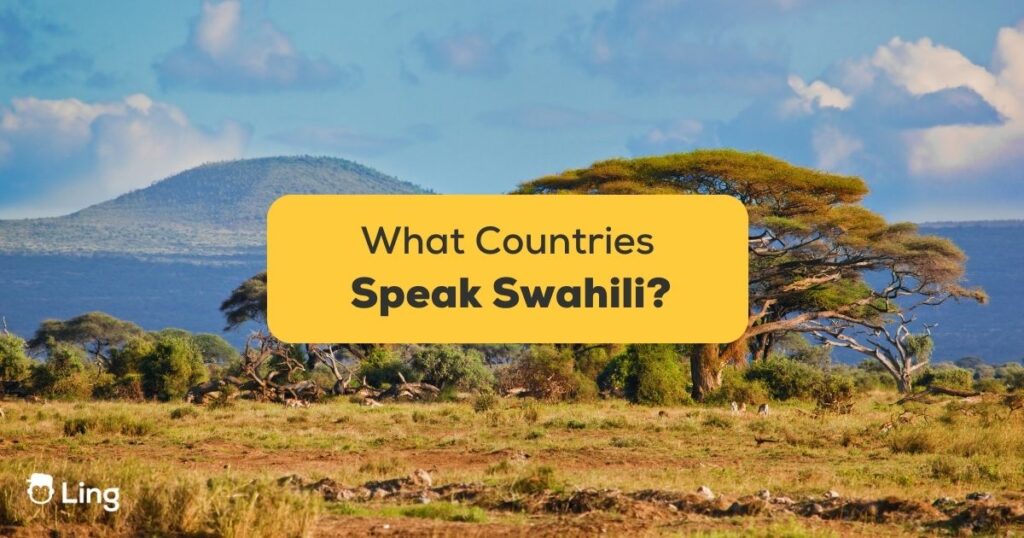Welcome to our language learning space, where we’ll take you on a history lesson back hundreds of years in Africa. Have you ever wondered what countries speak Swahili? Swahili is a Bantu language that has gained popularity among language lovers thanks to its unique joining of African and Arabic influences.
In this post, we’ll answer your question: What countries speak Swahili? And also go into more detail about the intriguing history behind these African nations.
Swahili: The Biggest Language On The East African Coast
Swahili, or Kiswahili as it’s known in the language itself, is a language that spans the eastern coast of Africa. This beautiful language is not only spoken in its native land. It has also extended its reach to other neighboring countries. This is because of its unique cultural, historical, and political nuances and backgrounds, and it serves as a lingua franca for Eastern African language communication.

Tanzania: The Heart Of Swahili
Tanzania, located in East Africa, is often considered the heartland of Swahili. Kiswahili is the official language and national language of Tanzania. It is widely spoken throughout the country by mostly all native people. Swahili speakers have a long and complicated history. This dates back to the trade routes of the Indian Ocean, which connected them to Arabic, Persian, and Indian cultures as well.
Kenya: Swahili’s Second Home
Just north of Tanzania lies Kenya, where Swahili is also one of the official languages of the people besides English. The coastal regions of Kenya have a super strong Swahili influence. Still, it is one of the most widely spoken languages across the country. Swahili’s presence in Kenya is a testament to the historical interactions between the Arab traders and indigenous communities.

Uganda: A Taste Of Swahili
In Uganda, there’s a notable Swahili-speaking community. This is particularly true in the border regions adjacent to Kenya and Tanzania. However, it’s not as widespread as in Tanzania and Kenya.
Swahili’s Survival Through Colonial Times
Swahili’s remarkable survival through the turbulent colonial era is a testament to its resilience and adaptability. As European powers established their presence in East Africa, they often imposed their languages, mainly English and French. However, Swahili held its ground as a language of everyday communication, trade, and cultural expression.
One of Swahili’s strengths during colonial times was its inclusivity. It became a unifying force that enabled speakers from various linguistic backgrounds to communicate effectively. Additionally, Swahili was recognized as an invaluable tool for European colonizers. This allowed them to engage with local populations for trade and administrative purposes. This dual role contributed to Swahili’s continued relevance, making it a language that transcended colonial boundaries.

The Uniqueness Of Swahili Among African Languages
Swahili stands out among African languages for several reasons. This makes it a fascinating subject of study for language lovers:
- Bantu Roots and Arabic Influences: Swahili is a Bantu language. However, it has absorbed many influences from Arabic, Persian, and other languages over the centuries. This blend of African and Middle Eastern elements gives Swahili a unique blend of tones and characters.
- Phonetic Systems: Swahili’s pronunciation and writing system are super straightforward, making it accessible to learners. Its script is based on the Latin alphabet, with a consistent one-to-one between sounds and letters. However, as with any language, there might be a few exceptions or nuances.
- Gender & Nouns: Swahili, like other Bantu languages, uses a system of noun classes. These classes categorize nouns not strictly by gender but by other characteristics like inherent qualities or shape. Swahili has a system that contains up to eighteen classes or pairs of classes. However, not all are commonly used in everyday language.
- Cultural Significance: Swahili is more than just a language. It is deeply intertwined with the cultural identity of the people who speak it, mostly in Africa. It serves as an expression for storytelling, poetry, music, and oral traditions, enriching Swahili-speaking communities.
- International Reach: While primarily spoken in East Africa, Swahili has gained international recognition, with a growing number of learners and enthusiasts worldwide. It is one of the official languages of the African Union and an essential tool for diplomacy and business across the regions.

The Historical Reach Of Swahili Speakers
The history of Swahili is a fascinating history lesson for all those interested in where languages come from. Its roots are deeply entrenched in the Bantu languages of the African continent.
It also has influence from the Arabic traders who visited the Swahili Coast. This blend of African and Arabic influences created a unique language that has since become a major language for millions of people.
Swahili In The Modern World
Today, Swahili extends beyond just East Africa. It serves as a language of diplomacy and communication across the continent. It also holds official language status in the East African Community.
While it’s spoken by millions in East Africa, it’s also recognized as one of the national languages of the Democratic Republic of Congo. It has been adopted as an official language in Rwanda. In the Comoros Islands, a language closely related to Swahili, called Shikomor (or Comorian), is spoken. However, it’s not the primary language.
Swahili Vocabulary Lesson
Do you want a vocabulary lesson? Let me give you some common Swahili words to sound like a local.
| English | Swahili |
|---|---|
| Welcome | Karibu |
| Swahili | Kiswahili |
| Voice/Sound | Sauti |
| Language | Lugha |
| History | Historia |
| Community/Association | Jumuiya |
| Thank you very much | Asante sana |
| Welcome again | Karibu tena |
| Goodbye/Farewell | Kwaheri |
Swahili connects millions across East Africa. So, by understanding these basic terms, you’re taking the first step into a deeper appreciation of this unique linguistic heritage.
Learning Swahili For A Cultural Journey
Learning Swahili opens doors to a cultural experience that extends beyond language. The traditions, music, and folklore of the Swahili people are intricately tied to Kiswahili. So, suppose you’re considering learning a new language and exploring a vibrant culture, then Swahili might be the perfect choice for a unique experience!
Asante sana (thank you very much) for joining us to discover what countries speak Swahili and uncover the captivating history behind this unique language. Karibu tena (welcome again) as we explore more cool language journeys. You can also check out 10 basic Swahili phrases & Swahili language greetings for basic practice!
Learn Beyond What Countries Speak Swahili With Ling
Do you want to learn more about the niche language of Swahili, like native speakers, but don’t know where to find online resources to help you? Look no further and download the Ling app today from the App Store and Play Store.
Kwaheri (goodbye) for now!



































































